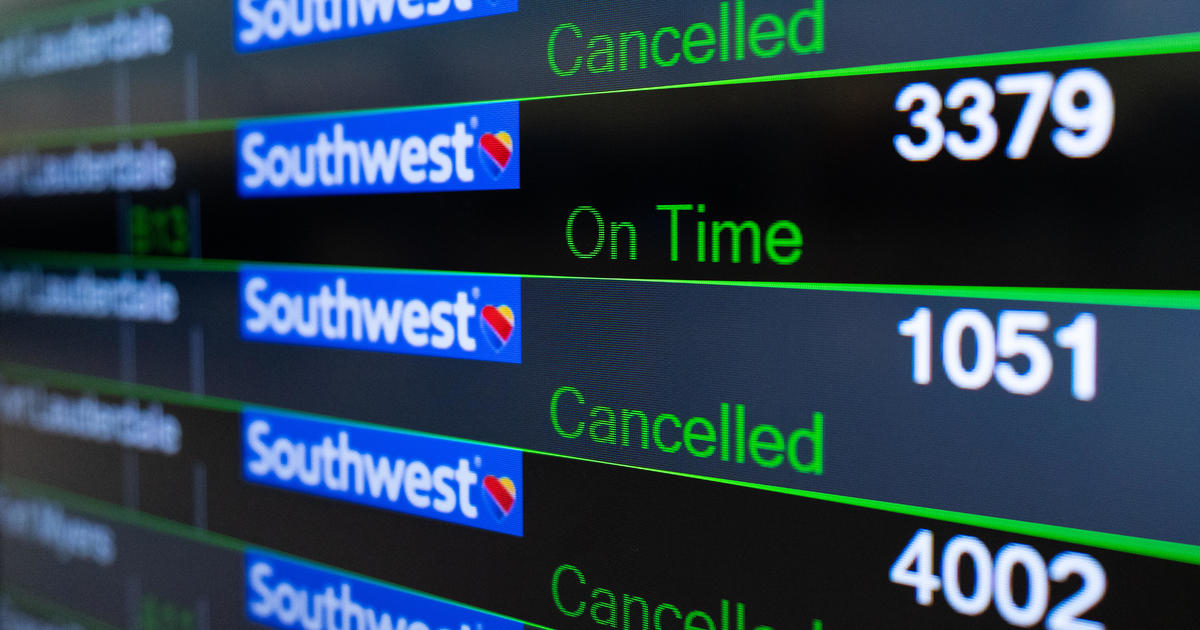Maryland workers say they're owed millions in unpaid overtime and benefits as WJZ investigates wage theft
BALTIMORE -- Wage theft costs Americans more than any other type of theft.
"Owed," a WJZ investigation in collaboration with the CBS News' Innovation Lab, found thousands of Marylanders have filed complaints with the state claiming they are being cheated out of millions of dollars in overtime and benefits they earn from their employers.
Maryland has some of the nation's stiffest penalties for employers who break the law.
CBS News obtained data from the Maryland Department of Labor under the Public Information Act.
It revealed:
- 8,290 wage theft claims dating back to 2009 that total $20,140,568.60
- The median amount owed is $934
- The biggest chunk of claims, 27% of them, were between $100 and $500
- Only 364 claims in the past 14 years, or 4.5%, were for more than $10,000
"I think we can confidently say that the official statistics on wage theft are not telling us the whole story," said lawyer Aron Zavaro, a partner at Thatcher Law in Greenbelt who specializes in wage theft cases.
He said some get settled out of court, and while other workers may be afraid to speak up, it is illegal for employers to retaliate.
"People are definitely afraid, but if you don't complain, all that happens is you're stuck in this position where you continue to be exploited," Zavaro said.
He also had a message to the many working from home after the pandemic: Make sure you're being paid for every hour.
"If this employee is on call and they're expected to do work at the drop of a hat, this really limits the amount of time they can spend for their own personal use. And if that's the case, this would be time that's considered on the clock for legal purposes. I think that's going to be a big issue going forward."
Low-wage workers and undocumented immigrants are some of the most common victims of wage theft.
In one case, a federal court ordered the owner of several Howard County assisted living facilities to pay almost one million dollars in back pay and fines to 27 workers. Some were paid less than minimum wage and worked 24-hour shifts according to the U.S. Department of Labor, with the employer treating 12 of those hours "as unpaid sleep or leisure time."
One Maryland contractor who worked on construction projects at Morgan State University made employees pay him part of their paycheck every week just to keep their jobs, unbeknownst to the university, according to the Maryland Attorney General's office.
He ended up being sentenced to jail time, and made a video for the office as a warning to others.
"I thought I could be more competitive and make more money if I had workers give me a rebate out of their wages," Sergio Blanco said in the video. "Trying to get around the prevailing wage law was a big mistake"
"Oftentimes, this is a very expensive lesson that you will only have to learn once, as an employer," said Zavaro.
Maryland Carpenter Francisco Esparza testified before a Congressional committee last year, trying to persuade lawmakers to toughen federal penalties on employers and require them to provide employees with accurate pay stubs.
He spoke about being paid with personal checks and working seven days a week.
Government employees have also been shortchanged.
Baltimore City's spending board approved more than $3.5 million in settlements in 2021—to settle allegations of unpaid overtime for police officers and for employees of the former comptroller.
And last year, the state was ordered to pay almost half a million dollars to correctional officers in Jessup for failing to properly pay them overtime under the Hogan administration.
"People were getting held over, being told we need you for a longer amount of time, and when they clocked out, their wages were not reflecting that extra time—that overtime," said AFSCME union president Patrick Moran. And this was not a one-off. "This happened thousands and thousands of times."
Officers at other state-run lockups, including in Baltimore, say they were also shortchanged and some are still waiting on the U.S. Department of Labor to settle claims.
"Every time, it is always a fight for my money and what I'm working for. It has to result in me getting the union involved," said correctional officer Brittany Cocart. "It's never easy."
Experts tell WJZ, many times employers are simply unaware of wage requirements under the law.
In Maryland, CBS News' analysis of complaints to the state showed more than 6 in 10 people received some sort of settlement. But just 19% of employees were paid the full amount they believed they were owed.
Still, Marylanders were able to recover $8,346,019.71 since 2009.
"I personally think that any amount of money is worth you speaking up to your employer and saying hey, I'm not being paid what's owed to me," said Zavaro, the employment lawyer.
For those who've been short-changed, it can be worth every penny.
"You do a job, and you expect to be compensated," said Sgt Dorian Johnson, a union rep for Baltimore City correctional officers.
The Maryland Department of Labor has 15 investigators and supervisors who work on wage claims.
One-third of them are bilingual in English and Spanish.
They handle complaints at no cost to you and said more than half are resolved in less than 60 days.
"After investigation, the Commissioner has the authority to issue a "final order" to compel the employer to pay any wages that are due. But 90% of the claims are resolved by the Employment Standards unit of the Department of Labor without having to issue a final order," the department told WJZ.
Employment Standards has a call center at 410-767-2357 and anyone can talk to an investigator, have their questions answered and receive instruction on how to properly file a complaint.
"Employers need to be educated on what their obligations really are because a lot of them just don't know. Likewise, employees need to be educated on what their rights are," Zavaro said. "Until that happens, I think these violations all continue to happen because if someone just doesn't know what the law is, they're not going to pay their employees what's needed."




